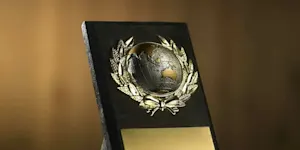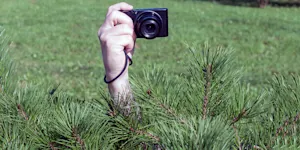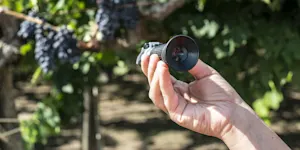What Makes This Word Tick
"Didactic" is like that teacher who always had a lesson up their sleeve and maybe a piece of chalk behind their ear. It's about instruction, often with a hefty side of moral guidance. The word carries a sense of intent — a wish to educate, to inform, and sometimes, to kindly steer the listener in the right direction.
If Didactic Were a Person…
Imagine Didactic as a wise, slightly eccentric professor who loves stories that teach a lesson. They could be found sitting under a tree, surrounded by students hanging on every word, or perhaps lecturing a small class with enthusiasm for obscure historical tales.
How This Word Has Changed Over Time
Historically, "didactic" had its roots firmly planted in education. Over time, it has come to sometimes bear a slightly pejorative tone, implying something overly preachy or moralistic. You could say it’s evolved from an apple on the teacher’s desk to a wagging finger when overused.
Old Sayings and Proverbs That Use Didactic
While not directly used in a plethora of old sayings, didactic's spirit lives on in proverbs like "Give a man a fish, and you feed him for a day; teach a man to fish, and you feed him for a lifetime." It's the implicit lesson or moral direction that makes it didactic in nature.
Surprising Facts About Didactic
Did you know "didactic" isn't just for words? Art and literature can be didactic when they aim to teach us something beyond the pretty pictures or engaging stories. Sometimes, even Silence in a classroom can be didactic—teaching us through the weighty absence of sound.
Out and About With This Word
You might encounter "didactic" out in academic settings or used by critics when discussing literature that pushes a moral. It’s that word that pops up in academic articles, critiques, and sometimes in casual conversation among the scholarly.
Pop Culture Moments Where Didactic Was Used
Didactic might not headline a pop culture moment, but it finds a place in any narrative that leaves you thinking about right and wrong, or perhaps pondering life’s many "teachable moments," like an episode of "The Wonder Years."
The Word in Literature
"Didactic" thrives in literature meant to instruct or enlighten the reader, like Aesop's Fables or almost anything by George Orwell. These writings often use storytelling as a vehicle for imparting wisdom, sometimes subtly—or not so subtly.
Moments in History with Didactic
The 18th-century Enlightenment period was inherently didactic, with philosophers like Jean-Jacques Rousseau promoting education and self-improvement as a societal goal. Their work aimed not just to inform, but to shape societal values.
This Word Around the World
Various cultures have their means of teaching through stories or actions. In Japan, "kyoiku" blends teaching and nurturing—an idea close to didactic. Many cultures embrace teaching via storytelling, emphasizing "learning moments" universally.
Where Does It Come From?
"Didactic" traces back to the Greek word "didaktikos," meaning "apt at teaching." It’s got good bones—ancient before it even found a place in the English lexicon in the 17th century. This word’s lineage is as instructional as its meaning.
How People Misuse This Word
"Didactic" sometimes gets misused to describe any serious or teaching-related content, when its truest use involves an overly moralistic or instructive tone. It shouldn't be pinned on just any lesson plan.
Words It’s Often Confused With
Pedantic: Where "didactic" instructs with intent, "pedantic" gets bogged down in minutiae or nitpicking details.
Instructive: Though also about teaching, instructive doesn't inherently carry the moralizing tone of didactic.
Educational: A more general term for anything that teaches, lacking didactic’s specific moral focus.
Additional Synonyms and Antonyms
Synonyms for didactic include "informative," "educational," and "instructive." Antonyms might be "uninformative," "noneducational," and "unteaching."
Want to Try It Out in a Sentence?
"When I watched the nature documentary and learned about the plight of the rainforest, I couldn't help but feel the film had a didactic quality that urged viewers to consider their role in conservation."
















